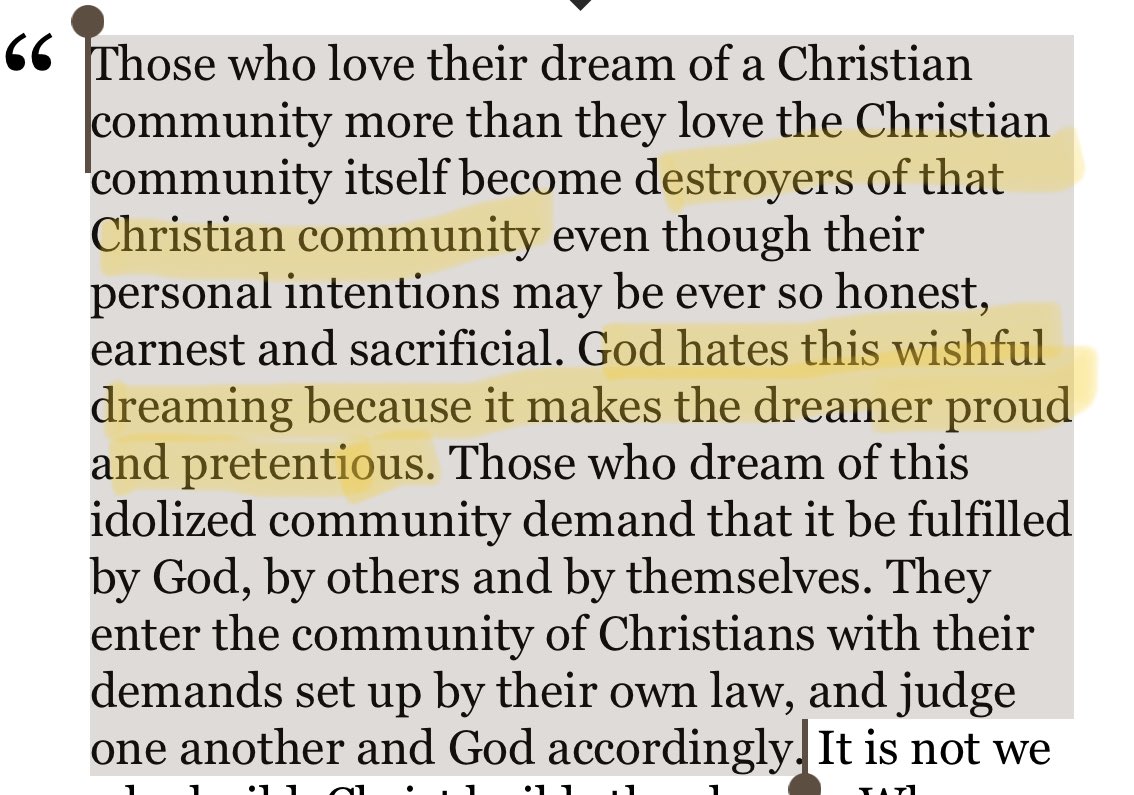
Confession time. I used to be an evangelical elite. 🧵 1/
Okay, not elite in the sense that people knew who I was, but as far as sensibilities, evangelistic approach, middle-way-ism, etc. I was fully aligned with evangelical elites in their strategy of cultural engagement. 2/
When I went off to college I quickly found a nondenominational mega church that was nothing like the cheesy and embarrassing SBC church world I had grown up in. 3/
I discovered relational evangelism which, whatever its merits, in my mind meant proving to non-Christian friends that I wasn’t like those other “crazy” Christians in the churches I had grown up in. 4/
I’d regularly share video clips of Christians doing cringeworthy things in an effort to show the “watching world” that there are cool Christians who also think the church is weird. 5/
At one point, I even hosted bad Christian movie nights that I’d invite Christian and non-Christian friends to where we would make fun of the cheese. 6/
My evangelism often involved an apologetic posture for what the Bible teaches. I remember one conversation in which I told an unbelieving friend that I believed what the Bible teaches on a particular issue is true but that I wished it wasn’t. 7/
I was a big believer in being a faithful presence and would celebrate prominent Christians working in entertainment, corporate America, and government. I justified a certain amount of compromise in order to maintain cultural influence that would surely be used in the future. 8/
I was fully on board with Christians moving to urban settings and moved my young family to Los Angeles. While I’d never articulate it like this, I looked down on other Christians not doing ministry in the city. The city was where God was working. 9/
Tim Keller was my guy. I saw him as *the* model for ministry. Finally a pastor that could preach the Bible with an intellectual approach that would appeal to the cultural elites I wanted to reach. 10/
When Donald Trump first ran for President I proudly announced I was NeverTrump more out of calculated evangelistic strategy than political decision. I was in solidly blue California, after all. My vote wasn’t going to make a difference. 11/
I saw first hand the utter contempt the coastal elites had not just for Trump, but for his voters, especially white evangelicals. 12/
As much as I didn’t like Trump and wanted my elite friends to know I didn’t vote for him, I couldn’t join the white evangelical pile on. These were my friends and family back home in swing states that didn’t have the luxury of the easy principled vote I had. 13/
These weren’t just the weirdo Christians we had made fun of together. These were some of the cool Christians that had agonized over their vote and ultimately decided a vote for Trump was the lesser of two evils. That didn’t matter. Just another thing to hate about Christians. 14/
All of that effort to rehabilitate Christianity by demonstrating how hip and relevant we could be, gone in a single election. All of the hard won cultural influence vanished in an instance. White evangelicals had become the most hated group among the people I wanted to reach. 15/
Seeing how my friends and family back home were held in such contempt, God began to convict me of how I had held other Christians in contempt. I had gleefully ridiculed the bride of Christ for not being cool like me. 16/
Jesus died for people I had derided just because their evangelistic approach wasn’t as sophisticated as mine. 17/
While I had been currying favor and influence with cultural elites, the types of Christians I had made fun of had been faithfully teaching the Bible in their Sunday School class or Awana or Backyard Bible Clubs in the flyover states. 18/
In 2017, we moved back to GA and wound up back in a smaller SBC church that preaches verse-by-verse through the Bible (something else I used to reject as woefully irrelevant.) 19/
It’s been here at this church that I have fallen in love with God’s people again. With all their faults and foibles, God has given me a tenderness for them that I never used to have. 20/
Previously, God’s people were always seen as an unfortunate obstacle to the mission which I’ve since come to realize was mostly about spiritualizing my desire to make a name for myself. 21/
When I critique evangelical elites, I do it from a place of recognition of what I used to be. When I see them throwing white evangelicals under the bus I recognize that impulse in myself. 22/
God’s people who haven’t yet trusted Jesus are going to come from every walk of life. I think it’s okay to have a special burden for a specific group of people, but that doesn’t give you license to police speech or behavior of fellow Christians that your group might not like. 23/
The watching world includes more than just the group you want to reach. (It even includes enthusiastic Trump voters 😬) The moment we start disparaging other Christians in order to reach our preferred group we’ve begun doing the work of the enemy. 24/
Take it from a recovering evangelical elite, the idol of cultural influence is strong and makes you prideful and arrogant. Examine your heart. Root out any contempt you find for Christ’s bride. The church isn’t perfect but Jesus loves it and we should too. 25/25
• • •
Missing some Tweet in this thread? You can try to
force a refresh





